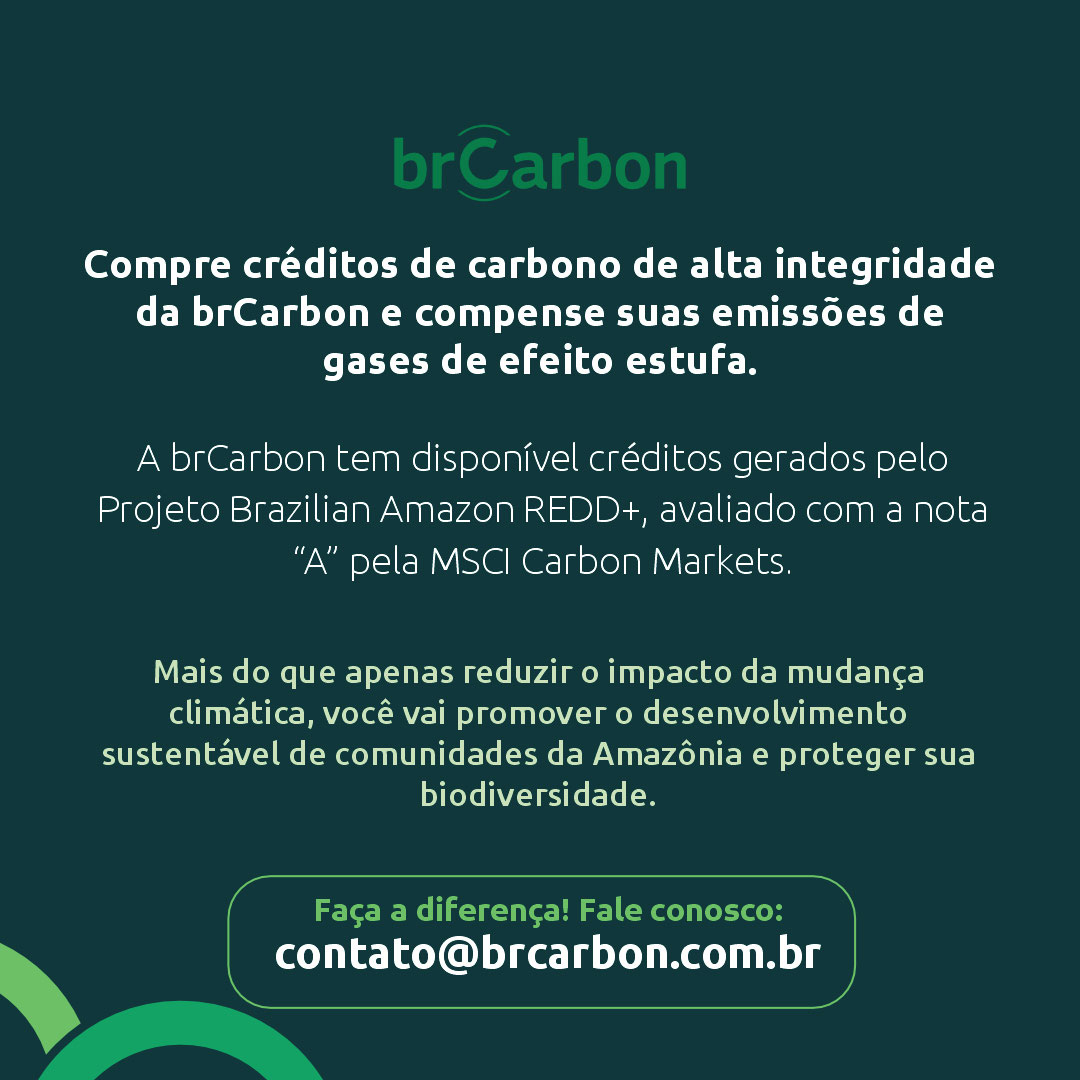We are brCarbon – a Brazilian Climate Tech created to promote forest conservation (REDD+) and reforestation (ARR) actions with carbon projects.
Here, the standing forest is worth much more!
Value the standing forest!
Offset your GHG emissions with high-integrity carbon credits
Get to know brCarbonWe are brCarbon – a Brazilian Climate Tech created to promote forest conservation (REDD+), ecological restoration (ARR) and sustainable agriculture (ALM) actions with carbon projects.
Here, the standing forest is worth much more!
Our Impact
Climate
3+ million
tCO2e avoided or removed by 2022*
*Vintages from REDD+ and ARR projects verified by Verra
Community
+800
beneficiary families*
*REDD+ and ARR projects in progress and under validation
Biodiversity / Climate
350+
thousand ha of forest under conservation*
*REDD+ and ARR projects in progress and under validation
Biodiversity
900+
species monitored*
*REDD+ and ARR projects in progress and under validation
Biodiversity
370+
are endemic species*
*REDD+ and ARR projects in progress and under validation
Biodiversity
30+
endangered species*
*REDD+ and ARR projects in progress and under validation
Our Impact
Climate
7.6+ million
tCO2e avoided or removed*
*REDD+ and ARR projects underway by 2023.
Climate
31+ million
tCO2e to be avoided or removed*
*Projection for the period 2020 to 2033 based on ongoing REDD+ and ARR projects.
Community
+800
beneficiary families*
*Ongoing REDD+ and ARR projects.
Biodiversity / Climate
450+
thousand ha of forest under conservation*
*Ongoing REDD+ and ARR projects.
Biodiversity
900+
species monitored*
*Ongoing REDD+ and ARR projects.
Biodiversity
370+
are endemic species*
*Ongoing REDD+ and ARR projects.
Biodiversity
30+
endangered species*
*Ongoing REDD+ and ARR projects.
Our solutions are based on nature, improving the quality of life in
communities and preserving biodiversity.
Projects
Financial incentives for conserving tropical forests in private areas
Amazonas

REDD+ APD (Avoid Planned Deforestation)
Promoting reforestation and environmental compliance to revitalize the ecosystem
Cerrado Biome

ARR (Afforestation, Reforestation and Revegetation)
Protecting forests and earning fair payments, helping to reduce carbon emissions
Acre

REDD+ AUD (Avoid Unplanned Deforestation)
Contributing to the preservation of the Amazon, generating financial compensation and conserving forests
Amazonas

REDD+ APD (Avoid Planned Deforestation)
Fighting deforestation, protecting forests and promoting sustainable practices
Pará

REDD+ AUD (Avoid Unplanned Deforestation)
Working to reduce deforestation and degradation in the Amazon and attract investments
Legal Amazon

REDD+ APD (Avoid Planned Deforestation)
All projects are registered on the Verra platform, in compliance with VCS and CCB standards, and are audited annually by a third-party verification body.





Our Nature Based Solutions
REDD+
Reducing Emissions from Deforestation and Forest Degradation
Conserve your forests and get paid fairly for it
ARR
Afforestation, Reforestation and Revegetation
Facilitate and expedite the reforestation of degraded areas and the environmental compliance of the property
Over 15 years' experience in carbon projects
Check out what some landowners have been saying
“I recommend brCarbon to other producers. With the price of beef today, one of the best solutions is to produce in a sustainable way, while preserving the forest, and I'm not afraid to recommend brCarbon to anyone because I believe it will be a great solution for us, cattle ranchers.”

“I am a supporter of both the company and the way it is conducting the process: serious, transparent, involvement of the surrounding community, independent evaluations and audits. We're pleased with it and the projections and calculations are very attracting. Today it is more profitable to keep the forest preserved than to raise cattle in the same area.”

“The partnership has been very good for me. Today the Pratigi Project is like the flagship of our company: protecting the environment. We depend on big companies to buy our products, and they're very connected. When they get here, they ask how we're preserving the springs, how the PPAs have been maintained... So, we're ahead of the game.”

“We have to worry about the forest, it plays a very noble role, such as being responsible for rain corridors, for example. Furthermore, another advantage for landowners in participating in projects like the Emas-Taquari is that they can regularize land with environmental liabilities.”

